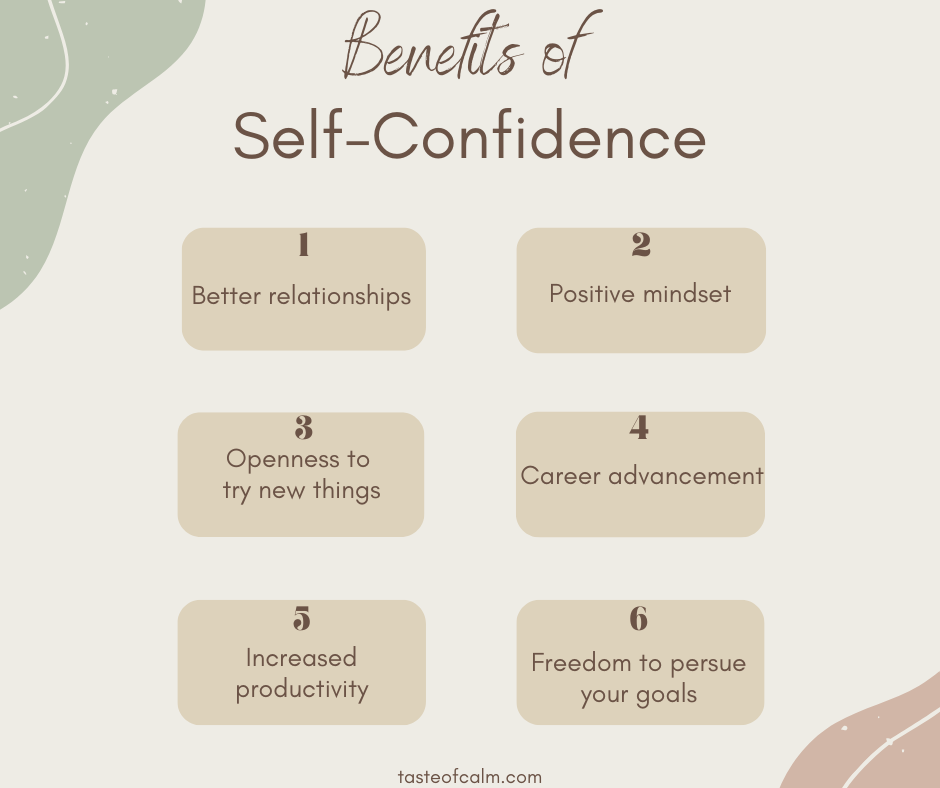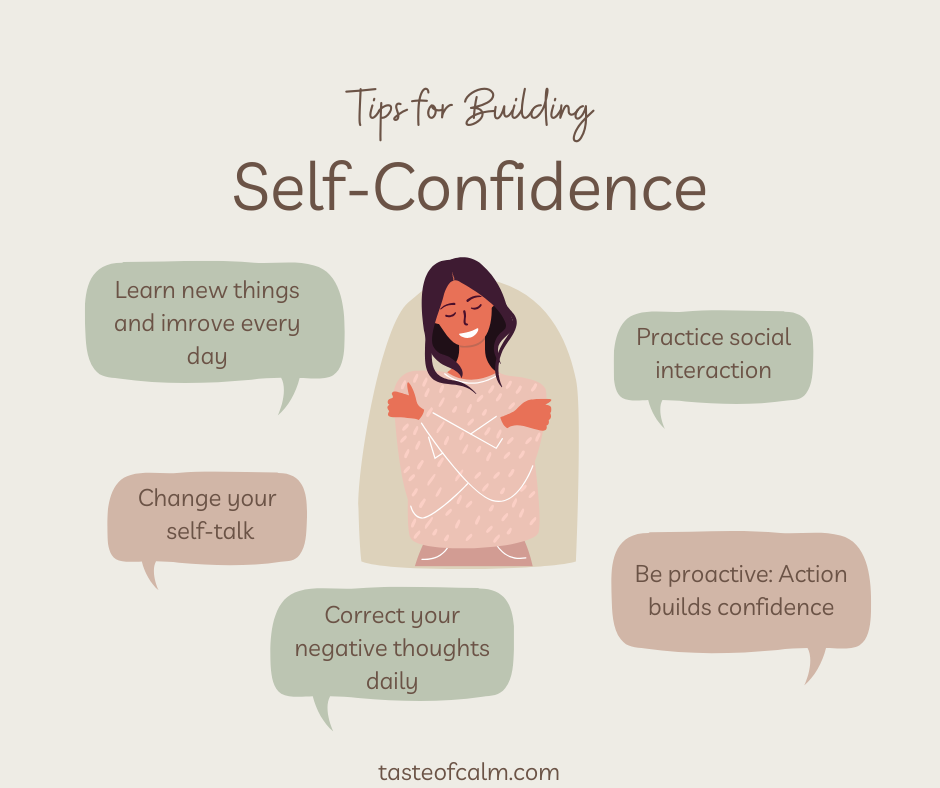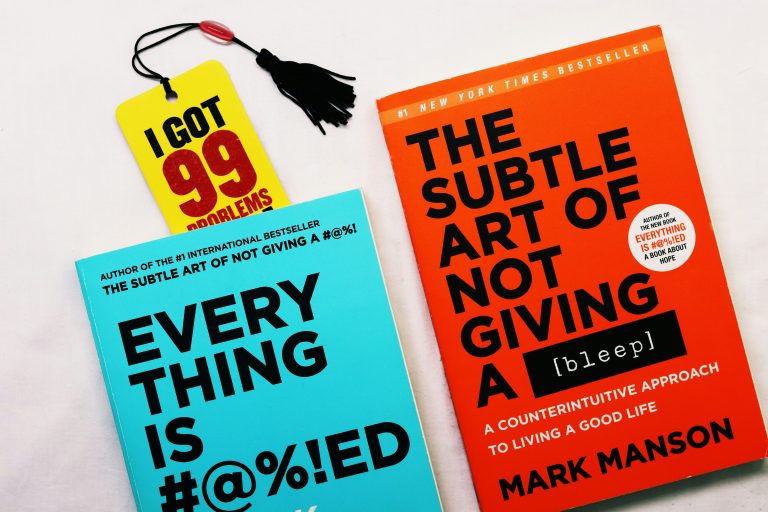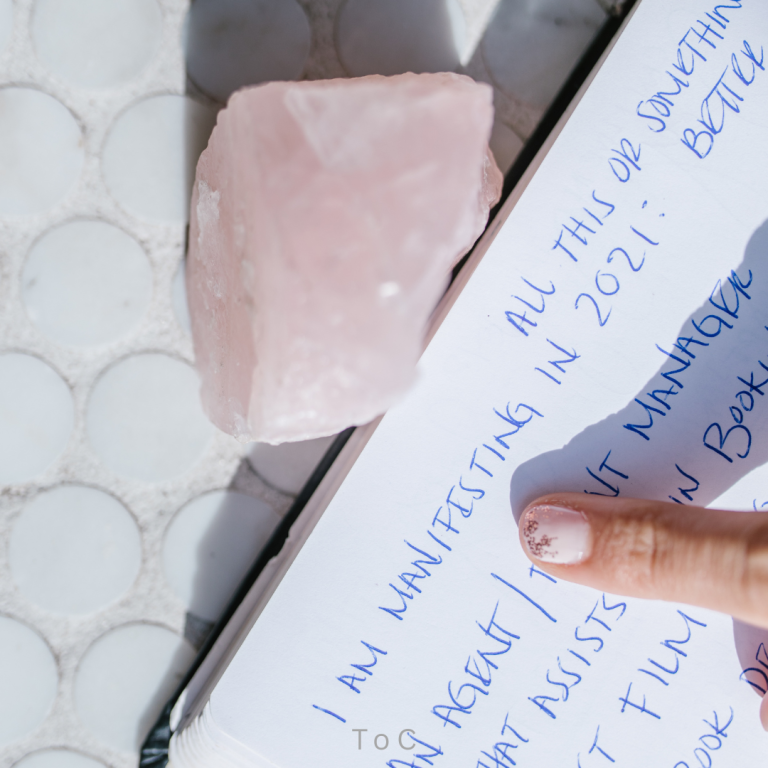How to improve self-confidence
Struggling to improve self-confidence? You are not alone.
I’ve struggled with self-confidence my whole life.
As a kid, I was really shy. Making friends and opening up to people felt almost impossible.
Things got a bit better as a teenager. I made a few friends, but I still didn’t feel confident. I was always the quiet one, too scared to say something that might make others laugh.
I didn’t stand out. I was even too shy to notice when someone liked me.
I was a curious kid, though. I loved reading, watching movies, sports, and music. But even with all that, I stayed quiet, too nervous to share my thoughts.
As a student, I struggled to make friends. I liked so many people, but was too scared to ask them to hang out or build stronger connections. The same thing happened with love. I had a crush on a boy in middle school, and even though he liked me too, I couldn’t bring myself to say anything.
In college, nothing changed. I got invited to parties, but never went because I felt awkward and scared.
My low self-confidence even affected my work. In meetings, I never knew what to say. When I did speak, I stumbled over my words and felt awkward. My heart would race like I’d just run a marathon.
Speaking in front of others has always been my biggest challenge. I’ve struggled with it at every stage of life.
Why is self-confidence important?

You might be brilliant and well-read, but if you can’t join a conversation with a group, it can really affect your life.
Self-confidence is something you notice in people right away.
It’s in the way they smile, approach others openly, and make you feel welcome. Confident people aren’t afraid to ask for help or connect with those around them.
As I grew older, I realized how much my life could have been different if I had overcome my low self-esteem.
I missed out on friendships, moments of feeling loved and appreciated, exciting new experiences, and even career opportunities.
I truly believe that self-confidence and self-esteem are some of the most important traits for success.
Confident people don’t worry about what others think of them, and that gives them the freedom to pursue whatever they want.
When you believe in yourself, there’s nothing you can’t do.
We often obsess over small flaws, like a bigger nose or thinner hair, but none of that matters if you carry yourself with confidence. Confidence is what truly makes you stand out.
How to improve self-confidence?
The good news is that self-confidence often improves as you get older.
With maturity, you start to see both your flaws and your strengths more clearly.
You stop worrying so much about what others think. You feel grateful for what you have even if there are more wrinkles or grey hairs now.
You become kinder to yourself. You realize what low self-esteem has cost you over the years: the missed opportunities, the unnecessary fears, and the mistakes you made because of doubt.
You also understand what truly mattered and how you could have pushed harder against your insecurities.
Letting insecurities control you can hold you back from reaching your full potential.
Thankfully, I found several steps that helped me build my self-confidence over the years:

Learn and improve every day
The best way to improve self-confidence is to keep learning. You should make it a habit to learn something new every day, whether it’s about communication, writing, social skills, or even your mental and physical health.
Improving your knowledge and taking care of your body both play a big role in building confidence.
The more you know and the better you feel, the more confident you’ll become in yourself.
Never stop learning and growing.
The process of learning is one of the best ways to boost your confidence. As your skills and knowledge grow, so does your belief in yourself.
Related post: The Power Of Reading
Practice social interaction
Social interaction is essential for both personal happiness and professional growth, and it is the best way to improve self-confidence.
If you tend to isolate yourself and prefer being alone all the time, it won’t help you grow in the long run.
I understand that socializing can be exhausting, especially for those who don’t thrive on it. But building connections with others is a key part of personal development.
Unfortunately, younger generations, often glued to their phones, seem to be losing this skill. Yet, real happiness comes from meaningful connections with people.
Even if you feel insecure or scared, it’s important to practice and learn how to build deeper relationships.
Looking back, I regret the times I was too afraid to say yes to an invitation or too shy to express how I felt. My life could have been very different if I had been braver.
Avoiding social situations only made my insecurities grow stronger. I learned that you only grow when you face your fears and step into uncomfortable situations.
A few years ago, I forced myself to take on a leadership role in a project that required regular meetings with different groups. At first, I felt awkward and unsure, but I gained so much from the experience.
Now, I handle online meetings with ease. I’ve had so many that I no longer fear them—I know I can handle them.
Change your perspective
Your perception is your worldview. How you interpret things.
As kids, we looked at things simply, curiously, and without any prejudice. We just saw things as they are and expected support and love from those around us.
But as you grow up, all that changes. You get comments from people about your looks, shyness, and awkwardness.
And all these comments, reactions, and experiences change forever the way you view the world around you.
You no longer see things as they are.
You see them altered by your own experiences and what others instilled in you.
Who you think you are is not who you are. Who you are is what you are doing. Dan Koe
This sentence from Dan Koe really made a significant impact on me when I read his post, and I could finally understand why I feel the way I do, why I have negative thoughts all the time, and the insecurities that prevent me from growing.
However, your negative thoughts can be turned into positive ones at any point in time.
This can be done through the repetition of positive thoughts, beliefs, and actions.
Correct your thoughts throughout the day
You cannot always control your thoughts.
But when you catch yourself thinking negatively, blaming others for your problems, putting yourself down, it is important to stop.
When a negative thought comes into your mind:
- Pause
- Question
- Keep the thought separate
- Turn the thought into something positive
- Remind yourself of your vision, goals, and priorities
Ask yourself why you have that thought, and what could have caused it. Is there an experience that influenced this way of thinking? You must try to understand the root of self-doubt, the root of avoiding responsibility for your own life, and the root of fear.
Separate yourself from that thought, it is not who you are.
And immediately fill your mind with opposing thoughts using proactive language.
An example would be:
I am boring so no one invites me over.
I am interesting and creative, and I have true friends.
Take action
Taking action is your biggest confidence booster in life.
As you repeat an action that is difficult for you, you become stronger and stronger day by day.
Reading and learning without doing will not help you improve self-confidence.
Affirmations also do not work without action.
The most important trait you want to adopt is proactivity. This means you will not blame others for what is happening to you. You will not blame the circumstances, your family, or your friends.
You will take responsibility for your actions and your life, and you will think about what you can do in every situation to make it better.
Sentences that begin with “If only”, “Had I”, “I couldn’t,” and so on should not exist in your vocabulary.
They serve no purpose.
Thinking about what could have happened had you been born in a different country, with different parents, and different friends is completely useless.
You are where you are for a reason.
And only you, through your own actions, can get yourself out of there.
Final thoughts
In order to improve self-confidence, you need to observe your habits, mindset, and behavior on a daily basis.
The key lies in you. What daily habits do you have? Do you keep learning and trying new things? Do you take action when it is needed? Do you prevent your negative thought patterns from affecting your life?
It is very popular today to promote affirmations as the most effective way to build confidence.
And I do believe they can help you a lot, especially in creating a positive mindset. However, just by repeating that you are confident, you are not going to become that.
We are what we do.
So learning and taking action is the most important way to boost your self-esteem.
Saying something does not make it true.
But the combination of learning, questioning, taking action, correcting, and affirming will get you where you want to go.
Related posts
How to Change for the Better: Tips for Personal Growth
How To Start A Gratitude Journal







